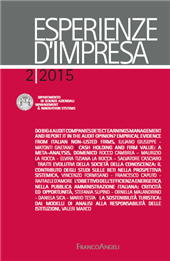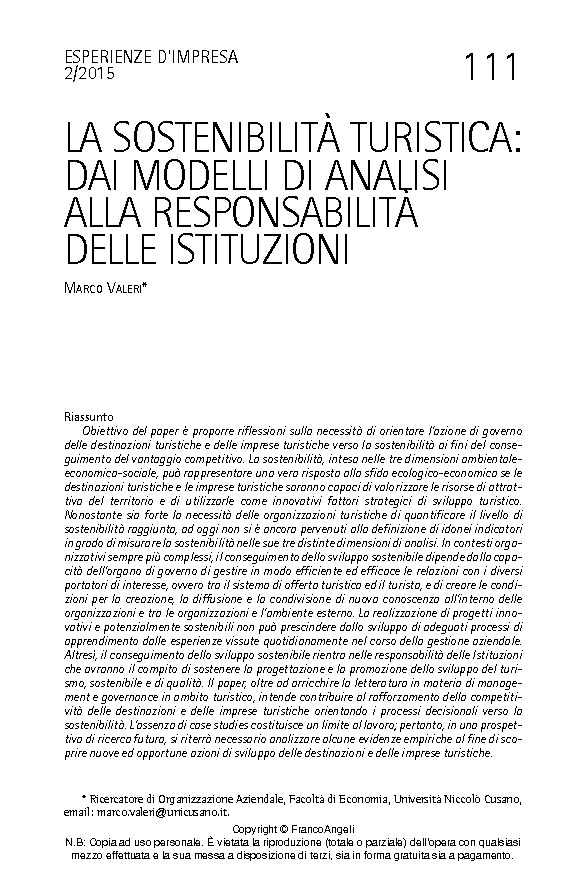La sostenibilità turistica : dai modelli di analisi alla responsabilità delle istituzioni
111-126 p.
The aim of this paper is to offer reflections on the need to direct the decision makers of tourist destinations and tourism businesses towards sustainability for competitive advantage. Sustainability can be considered among environmental, economic and social dimensions, and it can be considered as a real answer to the economic-ecological challenge, if tourist destinations and tourism businesses will be able to enhance the attractiveness of the territory resources, using them as innovative strategic tourism development factors. Despite the strong need to quantify the level of sustainability, to date studies have not yet reached the definition of appropriate indicators capable of measuring the sustainability in its three distinct dimensions of analysis.
The achievement of sustainable development de-pends on the government's ability to efficiently and effectively manage relationships with the different actors of the tourism system and to create the conditions for the creation and the sharing of new knowledge within organizations. The realization of innovative and potentially sustainable projects requires the development of appropriate learning processes based on a daily experiences advanced during the business management. The paper aims to contribute to strengthening the competitiveness of tourism enterprises orienting decision making towards sustainability. The paper limit is the lack of case studies. In a future research perspective, it is considered necessary to analyze empirical evidence in order to discover new and appropriate development actions of destinations and tourism enterprises. [Publisher's Text].
Is part of
Esperienze d'impresa : 2, 2015-
Articles from the same issue (available individually)
-
Information
ISSN: 2283-3374
KEYWORDS
- Destination governance, destination management, innovazione, sostenibilità turistica, network, vantaggio competitivo
- Destination governance, destination management, innovation, sustainable touristic development, network, competitive advantage



